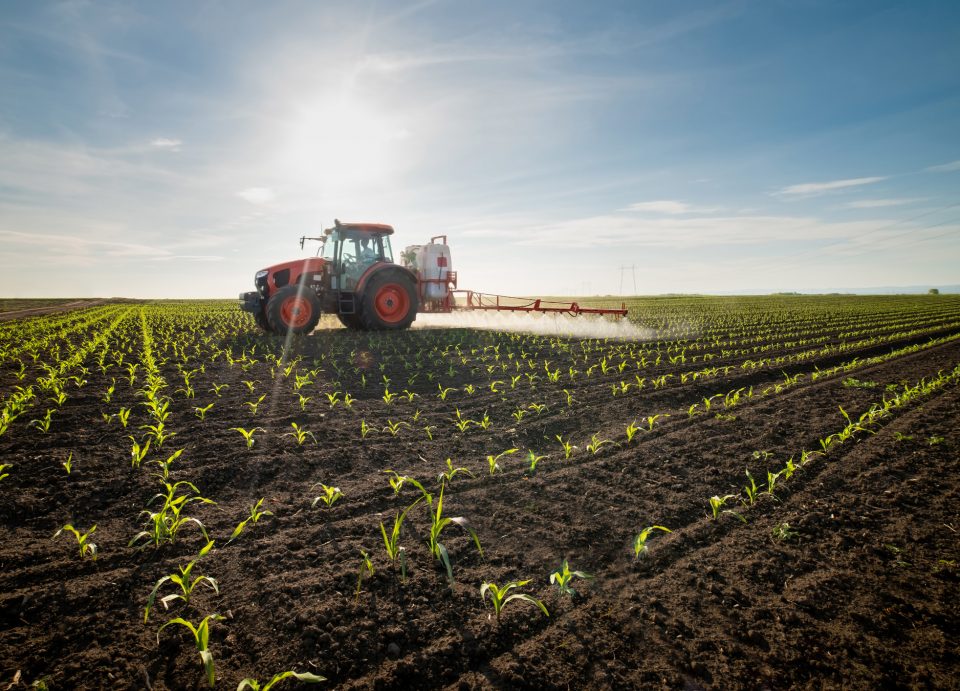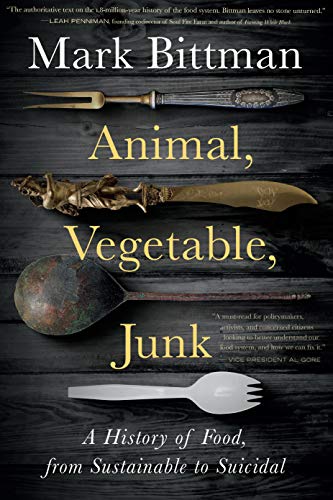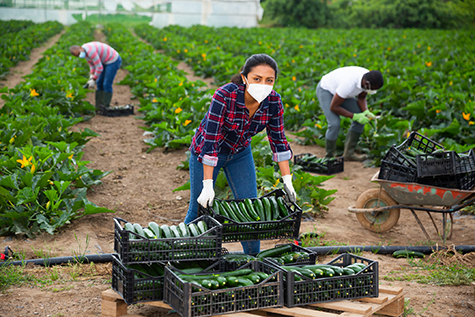Mark Bittman on Food: Sustainable to Suicidal


 The story of humankind is usually told as one of technological innovation and economic influence—of arrowheads and atomic bombs, settlers and stock markets. But behind it all, there is an even more fundamental driver: Food.
The story of humankind is usually told as one of technological innovation and economic influence—of arrowheads and atomic bombs, settlers and stock markets. But behind it all, there is an even more fundamental driver: Food.
In Animal, Vegetable, Junk: A History of Food, from Sustainable to Suicidal, trusted food authority Mark Bittman offers a panoramic view of how the frenzy for food has driven human history to some of its most catastrophic moments, from slavery and colonialism to famine and genocide—and to our current moment, wherein Big Food exacerbates climate change, plunders our planet, and sickens its people.
“You can’t talk about agriculture without talking about the environment,” he writes. “You can’t talk about animal welfare without talking about the welfare of food workers, and you can’t talk about food workers without talking about income inequality, racism and immigration.” Every issue touches another.
Even still, Bittman refuses to concede that the battle is lost, pointing to activists, workers, and governments around the world who are choosing well-being over corporate greed and gluttony, and fighting to free society from Big Food’s grip.
The book is divided into three sections:
Part I: The Birth of Growing-Soil and Civilization
- Colonial powers forced Indigenous people to farm crops that benefited Europeans, “establishing cash-crop monoculture” for maximum profits.
- Soil depletion spurred a search for fertilizer, from bird droppings (“guano-mania” raged in 19th-century Europe) to ammonia-based chemicals.
Part II: The Twentieth Century
- Machinery, pesticides, and governmental policies abetted industrialized farming: a “push to grow larger and focus on one crop.”
- “Hybrid” crops produced higher yields than vegetables planted on their own, which in turn lead to an overproduction surplus of crop.
Part III: Change
- Much distribution remains decentralized, and subsistence and small-scale farming thrive and even dominate in most of the world.
- Many people grow food sustainably, with judgement, experience, and wisdom, along with an understanding that agriculture can’t be reduced to a formula.
Some insist that technological innovation will pave the path, that tweaking and improving the current system will save it. And undoubtedly innovation will be useful in building a sustainable system: creating meats without animals, or biofuels without corn or other living plant matter, increasing plants’ photosynthesis, even using genetic engineering wisely, to increase crops’ nutrition or ability to fix nitrogen, or employing various forms of “precision agriculture” that minimize water and chemicals.
But technology won’t fix the fundamentally flawed relationship between food, people and the planet.
Sweeping, impassioned, and ultimately full of hope, Animal, Vegetable, Junk reveals not only how food has shaped our past, but also how we can transform it to reclaim our future.
